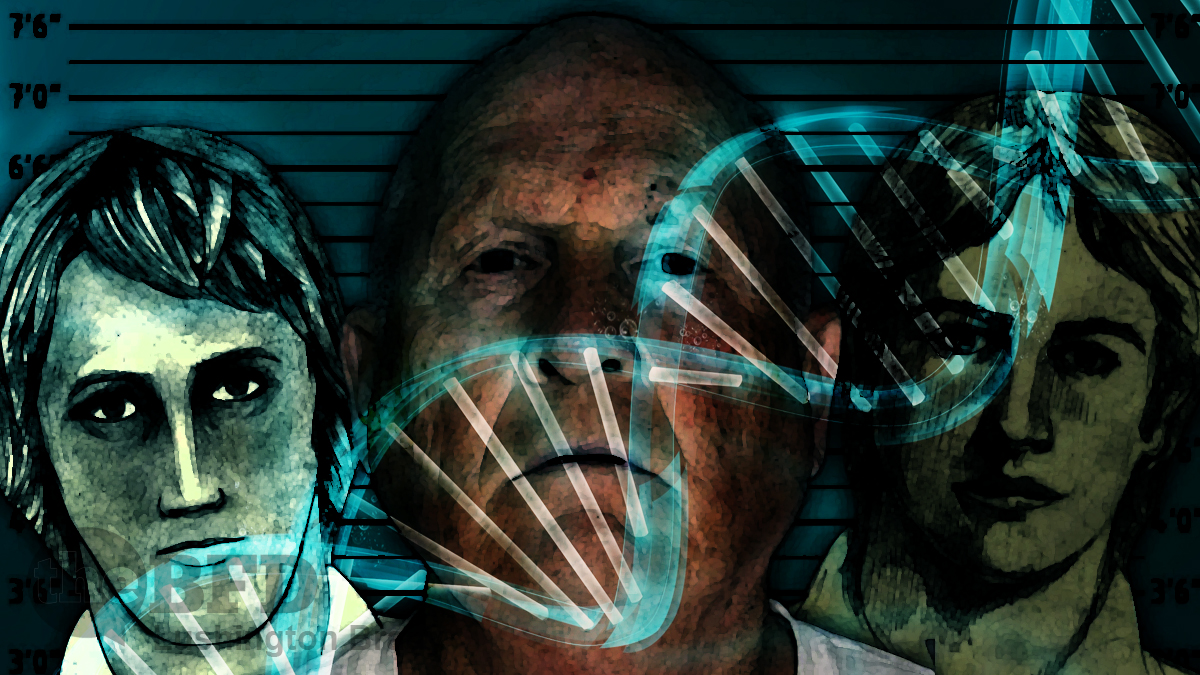Table of Contents
When one of the USA’s worst serial killers and rapists, who terrorised a state for decades, was finally caught, surely no one could object?
But they have.
Because the killer was caught using publicly available genealogy database technology.
Now, not only are private companies refusing to cooperate with police, but US states are enacting laws to close off what is potentially a hugely valuable detective tool.
This week, The New York Times reported on new laws in Maryland and Montana that restrict law enforcement’s use of genealogy databases to catch serial killers. (Maryland I can understand, but Montana? Has someone kidnapped Gov. Greg Gianforte?)
Some of the largest DNA databases — Ancestry, 23andMe and Helix — already refuse to share their databases with the police without a court order.
I’m sorry, but why? What is their argument? Ancestry doesn’t want to lose the business of skittish serial killers?
So why this sudden flurry of concern over genealogy websites and criminals’ “rights”?
Everyone agrees that these pro-criminal rules were a direct response to the “controversy” of law enforcement catching the Golden State Killer in 2018.
He may not be as famous as Ted Bundy or Henry Lee Lucas, but Joseph DeAngelo was a monster right up there with the worst. The Golden State Killer murdered at least 13 people and brutally raped and tortured at least 50 women, along with other crimes. He preyed with impunity for 13 years and seemed likely never to be caught.
Until two ingenious detectives came up with a simple, but brilliant idea.
Sheriff’s investigator Paul Holes and FBI lawyer Steve Kramer created a fake profile on GEDmatch using DNA from a rape kit of one of the Golden State Killer’s victims. This produced distant relatives of the rapist, allowing them to build a family tree, leading to Joseph James DeAngelo, then living in a Sacramento suburb. Officers began surveilling DeAngelo, collected his DNA from a car door and discarded tissue and — bingo! — it matched the Golden State Killer’s semen sample.
Keep in mind that no one’s confidential information was accessed and that DeAngelo was identified with 100% accuracy. So what’s the problem?
My entire life I’ve had to listen to liberals wail about all the “innocent” people on death row. (There is no credible evidence that any innocent person has been executed in this country since at least 1945.) They pretended to be against murder, just deeply horrified by the idea that we might execute “the wrong man.”
Now we have the technology to make identifications that are infallible — and liberals say we can’t use it because of their concern about maintaining the serial killer’s privacy[…]
Yeah, that sucks. The white ex-cop — catch that, #BLM? — who tortured and raped women while their partners were forced to listen in the next room, then made obscene phone calls to his victims, was finally captured after a 40-year search, whereupon: “Questions intensified.”
Let me restate: no one’s confidential information was accessed. The detectives did nothing different than anyone else sending a DNA kit to Ancestry or 23andMe does. They just used a criminal’s DNA.
Law enforcement officers wouldn’t be scrolling through personal genetic information. Indeed, they can’t view information about specific individuals at all. They submit a DNA profile and, if there’s a match to a criminal, an alarm goes off. Nothing comes back unless there’s a hit.
There’s an easy solution to any privacy concerns. If you don’t want the police finding you through a genealogical database, don’t leave your DNA at a crime scene.
If you submit a DNA kit to a genealogy company, you will receive a list of people who are related to you, including in what degree (siblings, cousins, second cousins, and so on). Most have full names and often photos listed. It seems that the only extra information the cops might need would be full names where they aren’t listed.
If Democrats really gave a crap about privacy, how about a “coalition” to prevent businesses from selling our names and addresses to third parties? How about prohibiting Google, Facebook and Apple from spying on us? Can we start there, rather than blocking law enforcement from using genealogical websites to catch criminals with 100%, absolute, dead-on accuracy?
Takimag
Sure, “cops using DNA databases” sounds scary, but in an era when people are uploading everything including what they ate for breakfast, it seems a bit absurd. It seems even more absurd to let private companies build and share mountains of our personal data with each other, but not with the police.

Please share this article so that others can discover The BFD









